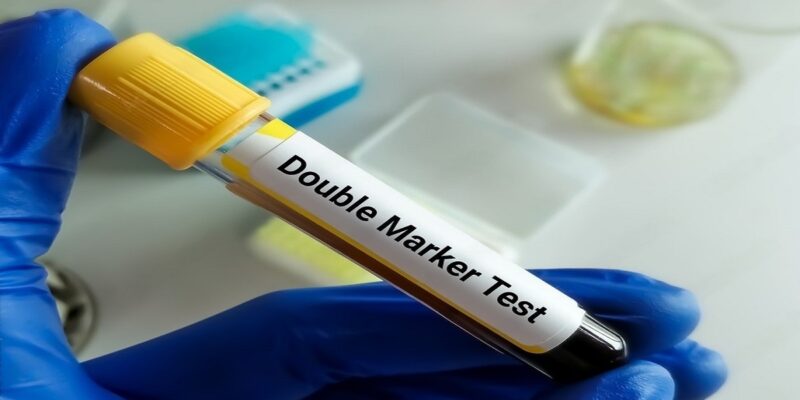
Dual Marker Test in pregnancy are now an inevitable part of pregnancy outcome monitoring, for the benefit of both the mother and the baby. The double marker tests play an important test for identifying chance and risk factors at the initial stage of pregnancy. Nonetheless, similar to other medical procedures, there will be concerns and questions for the pregnant couples. In this article, we address some of the basic issues about double marker test, which gives an insight into their importance and the test process.
What is a Double Marker Test or Dual Marker Test?
Double marker test is a prenatal screening method designed to evaluate the risk of chromosomal defects, e.g. Down’s syndrome (Trisomy 21) and Edwards’ syndrome (Trisomy 18), in the fetus. It involves measuring two specific substances in the mother’s blood: hCG (human chorionic gonadotropin) and PAPP-A (pregnancy-associated plasma protein-A).
How is it Different from Other Prenatal Tests?
Just like the amniocentesis and chorionic villus sampling (CVS) diagnostic tests, which directly examine fetal cells, dual marker tests are non-invasive and have no risk to the fetus. They help determine the possibility of chromosomal abnormalities based on the levels of hCG and PAPP-A in the mother’s blood.
When is the Test Usually Carried out?
The dual marker test is usually conducted between the 10th and 13th weeks of pregnancy, making it a good early screening method for women to opt for. This facilitates early decision making where additional diagnostic tests may be necessary.
What Are the Results If We Can Interpret Them?
The double marker test results are interpreted as risk score or probability. A low-risk result means the less possible of chromosomal abnormalities while a high-risk result implies that it must be examined more properly. It must be said that a positive result does not automatically mean the conclusion that there is a chromosomal abnormality. It only indicates that further testing could be done.
Are False Positives Possible?
It is like any screening test, dual marker test in pregnancy assay can also give false positive results, that shows higher risk of chromosomal abnormalities, when there are no anomalies at all. Like maternal age, weight, and the ethnic origin may also have some disparity in the performance of the test. When the result is ambiguous then the doctor validates the diagnosis or rules out the anomaly by recommending extra diagnostic tests.
Why is Dual Marker Testing a Beneficial Screening Method?
An important advantage of the dual marker testing in pregnancy is that it can provide early on the health of the baby, and this brings in a chance for the parents of the baby to opt for better decisions concerning the pregnancy. Firstly, diagnosis of chromosome abnormalities at an early stage empowers physicians to give an apt counseling and assistance and talk about possible courses of treatment with the affected person.
Is It Risky or Has Any Side Effects?
The double marker test that test for both markers are generally safe and do not pose any direct harm to the mother or fetus. It is one of the most preferred tests by patients because the technique is simple and includes only blood draw as the source of discomfort. Nonetheless, just like every medical test, there is a risk of having a false positive result, which could mean that a person must undergo further testing and experience higher rates of anxiety.
What are the Effects of Dual Marker Testing on Pregnancy Management?
The results of dual marker test in pregnancy not only influence, but it may also lead to additional testing and interventions if needed. Parents should seek genetic counseling and discuss their options following a high-risk result, as they can help them make the right decision and achieve the best outcome for their babies.
Last but not the least, the double marker test is the most efficient test after primary screening for checking the chance of chromosome disorder in fetus. Although they might be a source of concern among expectant parents, knowledge of the reasons, procedure and the consequences of the tests may help alleviate anxiety and ensure informed choice. The communication with healthcare providers is also essential in such a scenario as it would address the concerns and would be helpful for a positive pregnancy experience.











